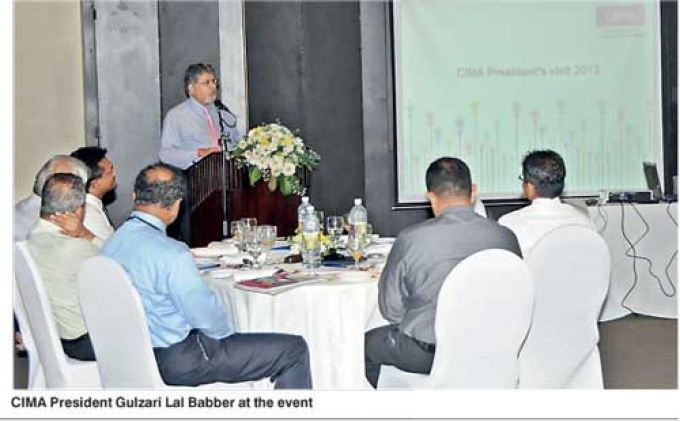Titled ‘Public Enterprise Performance: Issues, Problems and Causes,’ the informative presentation identified areas in which public sector enterprises have performance issues, whether managerial, operational, or at board level. The thought-provoking conclusions of this research, presented for the first time, were the source of animated discussion amongst members of the audience comprising public sector officials.
CIMA’s commitment to helping people and businesses succeeds in both the private and public sectors and has led to several research initiatives, showing that the need for performance enhancement in the public sector is not just a Sri Lankan issue. ‘Financial performance of state owned enterprises in emerging economies,’ a CIMA-commissioned research report from May 2012, concluded that poor financial management practices were a significant contributor to the declining performance of the case study organisation , an important state-owned enterprise in Pakistan.
A 2011 study, ‘Public sector performance: a global perspective,’ addressed the introduction of performance management measures and frameworks into the public sector, reviewing cases of public sector organisation s across the globe that implemented such processes and the effect on their performance.
The study identified several features that make performance management more difficult in the public sector, including the lack of a predominant profit motive, politics, as well as complicated delivery chains, multiple stakeholders, unclear cause and effect relationships, and attitudes toward accountability and transparency.
It also revealed that strategic performance management (SPM) is a process rather than an isolated event, and requires continuous development of people, processes and services. The report also discusses the need to monitor the ‘right’ activities – those that contribute to the achievement of strategic objectives and outcomes that demonstrate that those objectives are being met.
Drawing on the research and recognising the role of the public sector in a nation’s success, Mr. Babber stressed the importance of implementation and follow-through, which demonstrates the need for improvement of management accounting processes. He added that this provides an opportunity for management accountants to truly add value.


